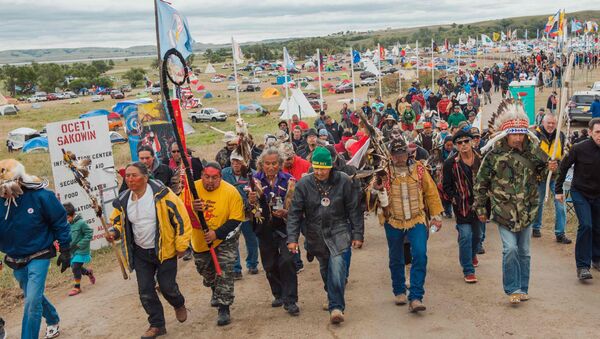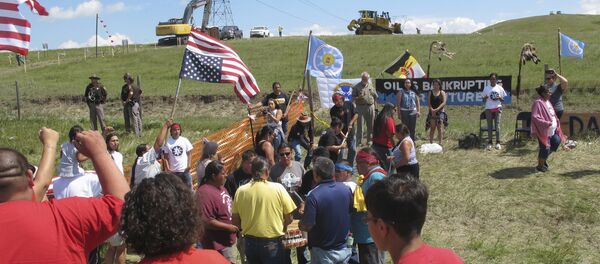Native News Online reports that not only will the DAPL protest benefit from the young people’s numbers, but their presence could help to counter a large uptick in suicide among Native American youth.
The site reports that, for decades, Pine Ridge residents have suffered from unemployment, poverty, high dropout rates for school, and lack of access to basic amenities such as water, electricity and plumbing.
The fundraisers’ Facebook page says "Despite these difficult conditions, Lakota youth are determined to support their people, make an impact, and be part of the history that Native tribes are creating right now. Many Oglala Lakota have already played a key part in the pipeline opposition."
The Standing Rock Sioux Tribe and their supporters have been peacefully resisting the construction of the $3.6 DAPL pipeline since the US Army Corps of Engineers notified the tribe of their intent to begin digging in February 2015. The tribe points out that this violates a 150 year-old treaty giving them sovereign control of the land.
Tribal members have been occupying the land in Cannon Ball, North Dakota, since that time, drawing thousands of supporters. North Dakota Governor Jack Dalrymple (R-ND), in what many consider to be an overreaction, declared a state of emergency and called in the National Guard in an attempt to remove the protesters, leading to nearly 100 arrests.
A statement released at the time by the North Dakota ACLU read, "The governor expected violent protesters and protests, but his expectations of violence have been met instead with peaceful civil disobedience. Overall, there is little to no evidence of violence on the part of protesters to justify the state’s response, but there is significant evidence of violence instigated by the pipeline company."
As planned, the 1,160-mile pipeline would cross four states, and Standing Rock activists observe that the DAPL would desecrate sacred lands and burial grounds, as well as having a potentially devastating impact on the environment.
Earlier this week, a federal official ruled that DAPL protesters would not be evicted from the Oceti Sakowin (Seven Council Fires) camp section of the site, ruling that doing so would impugn their right to free speech. This happened after a federal judge denied the tribe’s request for an official injunction to halt construction of the pipeline.





